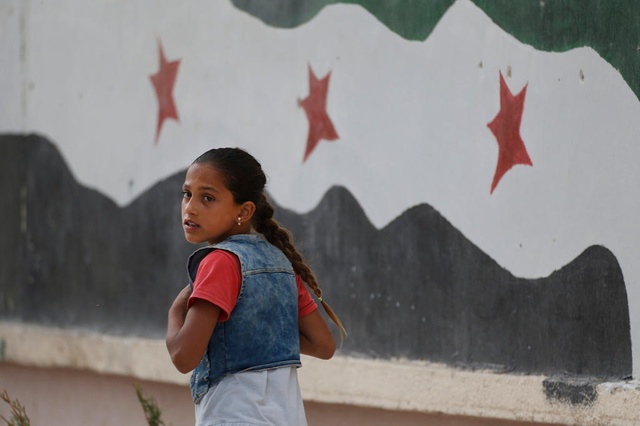من حيث المبدأ، يجب أن يكون المجتمع المدني غير مسيّس. ومع ذلك، في وضع مثل الوضع السوري حيث يتخذ نظام بشار الأسد موقفا عدائيا تجاه السوريين فيما يعدّ واحدة من أبشع جرائم الحرب في التاريخ، فإن للمجتمع المدني السوري دورا سياسيا يلعبه. وقد وجد المجتمع المدني نفسه في هذا الموقف بسبب الأداء البائس للمعارضة السورية عموما. فهذه الأخيرة كانت مهتمًة بألعابها الصغيرة ومكاسبها أكثر من اهتمامها بالقضية العامة لسوريا. لقد كان الاسد وحشيا ومجرما، ولكن المعارضة لم تكن على قدر المسؤولية، إذا أردنا أن نكون حذرين في استخدام كلماتنا. لم يكن هناك أي خيار آخر أمام المجتمع المدني سوى أن يكون له قول في الساحة السياسية.
12 / شباط / فبراير / 2019

وائل السوّاح – مع العدالة
من حيث المبدأ، يجب أن يكون المجتمع المدني غير مسيّس. ومع ذلك، في وضع مثل الوضع السوري حيث يتخذ نظام بشار الأسد موقفا عدائيا تجاه السوريين فيما يعدّ واحدة من أبشع جرائم الحرب في التاريخ، فإن للمجتمع المدني السوري دورا سياسيا يلعبه. وقد وجد المجتمع المدني نفسه في هذا الموقف بسبب الأداء البائس للمعارضة السورية عموما. فهذه الأخيرة كانت مهتمًة بألعابها الصغيرة ومكاسبها أكثر من اهتمامها بالقضية العامة لسوريا. لقد كان الاسد وحشيا ومجرما، ولكن المعارضة لم تكن على قدر المسؤولية، إذا أردنا أن نكون حذرين في استخدام كلماتنا. لم يكن هناك أي خيار آخر أمام المجتمع المدني سوى أن يكون له قول في الساحة السياسية.
 داخل سوريا، تركت حكومة الأسد مناطق واسعة بلا خدمات أو أمن. كان المجتمع المدني هو الذي تصدّى لملء الشاغر، من خلال لجان التنسيق أو المجالس المحلية. وكلما حاولت المعارضة أن تتدخل، ازدادت تعثرا.
داخل سوريا، تركت حكومة الأسد مناطق واسعة بلا خدمات أو أمن. كان المجتمع المدني هو الذي تصدّى لملء الشاغر، من خلال لجان التنسيق أو المجالس المحلية. وكلما حاولت المعارضة أن تتدخل، ازدادت تعثرا.
ومن هنا، فإن أفضل دعم يمكن للمجتمع المدني أن يقدمه إلى المعارضة هو بانتقادها، من خلال كونه ضمير المعارضة الذي يذكرها بواجباتها ويصحح انحرافها عن المسار الصحيح.
وللأسف لا يمتلك المجمع المدني سوى أدوات قليلة للقيام بذلك. من بين هذه القلة، يمكن التركيز على الأمور التالية:
– عدم وجود طموح سياسي: لا يمتلك نشطاء المجتمع المدني طموحات سياسية كبيرة، إن وجدت أساسا. إنهم لا يطمحون إلى احتلال مناصب عالية في المستقبل السياسي لسوريا. وهذا يمنحهم قوة أخلاقية، فهم لا يشكلون أيّ تهديد أو تنافس لشخصيات المعارضة. وهذا بالضبط ما يمنحهم نفوذا جيدا لفتح لنقاش مع المعارضة من أجل استكشاف سيناريوهات وحلول أفضل.
– المجتمع المدني لديه خطاب وبرنامج أكثر وضوحًا: للأسف، لا يوجد لدى المعارضة خطاب واضح حول القضايا السياسية الرئيسية في سوريا، فهي لم تطور رؤية متماسكة لسوريا مستقبلية تكون لكل السوريين. والأسوأ من ذلك أن المعارضة ليست قادرة على إنتاج مثل هذه الرؤية بسبب صراعها الداخلي والتفكير النقدي السطحي الذي تتمتع به شخصيات المعارضة. من ناحية أخرى، لدى المجتمع المدني الاهتمام والقدرة على تطوير مثل هذه الرؤية ومساعدة المعارضة على الوصول إلى رؤية أكثر وضوحًا للعملية السياسية.
– علاقة قوية مع القاعدة الشعبية: فشلت المعارضة السورية بشكل متكرر في بناء علاقة متماسكة مع القاعدة الشعبية السورية. وقد ترك السوريون فريسة سهلة للجماعات المتطرفة والراديكالية والفصائل العسكرية. بالمقابل، تمكن المجتمع المدني، على الرغم من قلة موارده، من خلق علاقة أفضل مع القاعدة الشعبية، مما يجعله أكثر قدرة على لعب دور في تعبئة السكان في الاتجاه الصحيح للخروج من الأزمة السورية.
– من بين الأدوات الأخرى التي يمتلكها المجتمع المدني رغبة المبعوث الخاص السابق ستيفان دي ميستورا لإشراك المجتمع المدني في العملية السياسية. وهذا يمكن أن يمنح المجتمع المدني رافعة أكبر لدعم (أو إضعاف) المعارضة.
كان يمكن للمجتمع المدني أن يفعل أكثر من ذلك بطبيعة الحال. ولكنه لم يفعل لأنه هو أيضا كان يعاني من مشاكل أصلية داخلية، فقد تولى مسؤوليات كبيرة في مجالات واسعة ولكن بدون كبير خبرة أو تجربة، إن وجدت أساسا. كما أنه هو نفسه عانى كثيرا من الأمراض ذاتها: المنافسة الداخلية والاختلافات القائمة على العوامل الفردية والشخصية أكثر منها على القيم والمبادئ. وقد فضلت منظمات المجتمع المدني، باستثناءات قليلة، العمل منفردة عن العمل في تحالفات حقيقية كبيرة، كما أنها تنافست على الموارد والتمويل، منافسة كانت أحيانا خارج السبل المستقيمة.
ولو أن منظمات المجتمع المدني تغلبت على هذه الاختلافات، لكان تأثيرها أكبر في الساحة السياسية، ولكانت المعارضة السياسية مضطرّة للاستماع لنصائحها والأخذ بآرائها ومخاوفها، ولكانت الشراكة المفترضة بين الطرفين حظيت بدعم أكبر من الحاضنة الشعبية، ما كان سيعطي مكانا متصدّرا للأعمال المدنية السلمية، مما كان سيدفع العمل العسكري إلى الوراء.
لم أشارك بشكل مباشر في غرفة المجتمع المدني. ومع ذلك ، قمت برئاسة اثنين من منظمات المجتمع المدني ، والتي شاركت في الغرفة. لقد شاركت في حدثين على هامش عملية جنيف ، داخل وخارج الأمم المتحدة ومجتمع دي ميستورا. HNC في هذه العملية. ومع ذلك ، كان رأيي الشخصي في خطة دي ميستورا سلبياً. أعتقد اعتقادا قويا أن دي مستورا أراد إشراك المجتمع المدني لسببين ، لم يكن أي منهم جادا. أولاً ، أراد أن يزين جهوده مع فاعل غير سياسي مقبول دوليا ، وخاصة من قبل الحكومة الغربية. ثانياً ، يريد استخدام المجتمع المدني كأداة للضغط على المفاوضين ، مما يوحي بأنه لديه حزب ثالث أكثر استعداداً للتعاون معه في خططه. لم أكن أعتقد أن دي ميستورا أراد فعلاً مساهمة من المجتمع المدني. أضع Mistura بضع مرات. في كل مرة ، أحاول إقناعه بدور أكبر وأكثر فاعلية للمجتمع المدني. لكنه لم ينظر لي كأي شخص أخذها بجدية.
أخيراً ، العلاقة بين المعارضة والمجتمع المدني السوري كانت دائماً متوترة ومحرجة. فمن ناحية ، رأى المجتمع المدني أن المعارضة مشغولة بقتالهم الداخلي والتنافس أكثر من القضايا الوطنية. وتعتقد المعارضة من جهة أخرى أن المجتمع المدني ليس لديه الخبرة الكافية وأن لديه اهتماما دوليا أكبر مما ينبغي له. وبالتالي فإن جماعات المجتمع المدني التي شاركت في عملية جنيف استهدفتها المعارضة وزملاؤها من المعجبين. وشمل ذلك غرفة المجتمع المدني والمجموعة الاستشارية للمرأة دي مستورا.

 Eng
Eng